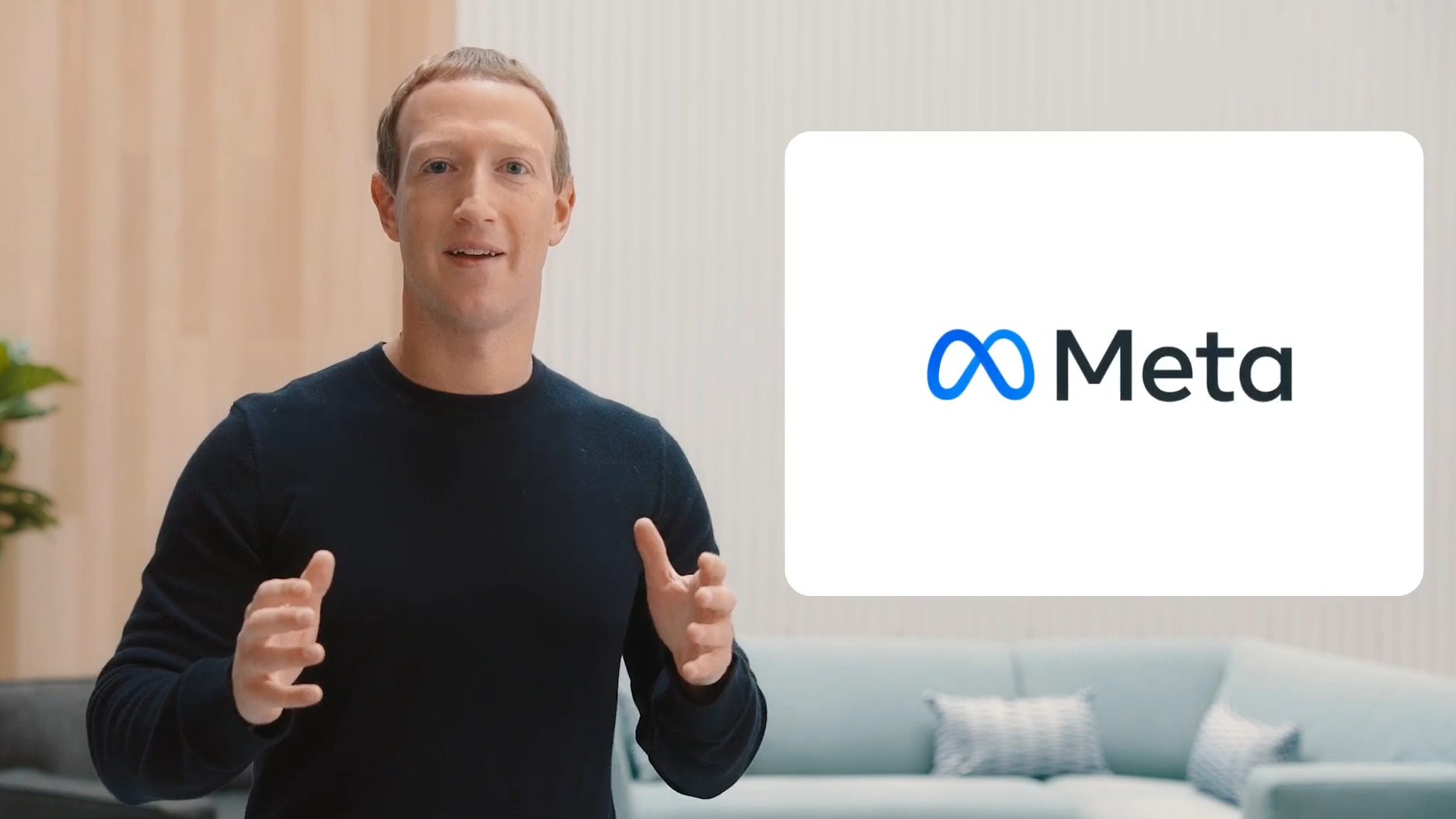On Thursday, at Facebook’s annual developer-focused Connect conference, keynote speaker and Facebook CEO Mark Zuckerberg took the stage—a virtual home—to announce the company’s latest update, along with a name change reflecting its new ambitions.
The new name: Meta.
But what about the Facebook name, originally derived from its first iteration, FaceMash, in 2003?
“Increasingly it just doesn’t encompass everything we do,” said Zuckerberg. “But right now our brand is so tightly linked to one product that it can’t possibly represent everything we’re doing today or in the future…I want to anchor our identity on what we’re building towards.” So, the parent company becomes Meta—though the social media app remains Facebook.

Meta, Facebook, and the many names associated with it still face the same issues they did moments before the announcement. In the past two months, Instagram has come under fire for severely impacting the self-esteem of younger users, especially those belonging to Generation Z. And leaked internal Facebook documents have shown the company was reluctant to do more to combat vaccine misinformation, the spread of fake news from white supremacist-supporting news outlets, and has devoted remarkably little resources to combatting the spread of harmful content in developing countries where Facebook is the dominant social network.
Read More: A New Name Won’t Fix Facebook
Despite the timing, the move helps to establish a clearer hierarchy within Zuckerberg’s ad-powered empire. It turns the social network into one of many products under the Meta parent company umbrella, including Instagram, WhatsApp, and Oculus, and places emphasis on future projects, making Facebook seem like a thing of the past.
While the name change was the big finish on Meta’s keynote presentation, the majority of it focused on the company’s desire to establish what it calls a “metaverse,” an effort to unify the company’s existing brands (like Oculus) to create immersive virtual and mixed reality environments in which users can interact.
“You’re going to be able to do almost anything you can imagine,” said Zuckerberg, who described the multiple ways people would interact in VR. Zuckerberg emphasized the metaverse’s immersive potential, in situations like family visits or office meetings. “Instead of looking at a screen, you’re going to be in these experiences,” he said.
Zuckerberg demonstrated what that would look like in a fantastical representation of what users would see in a VR headset. On a Star Trek-esque space station, Zuckerberg played poker with a hologram of a friend, a robot wearing a casino visor, and some cartoonish, virtual representations of other humans. They floated around an “AR art installation.” He was teleported to a forested world with the poker-playing robot friend, while taking a call from his wife. The presentation was a visually stimulating, and at times an overwhelming, demonstration of what users could expect.
Horizon Home is the first introduction of the company’s metaverse efforts. Displayed as a virtual home, it serves as a hub to access other activities and interact with friends. It’s also a jumping-off point into Horizon Worlds—a community-facing open world app that lets users create new content, like items and effects, with a seemingly drag-and-drop programming language—and Horizon Workrooms—essentially a metaverse office, designed for meetings, collaboration and productivity. Zuckerberg said the company is looking for ways to avoid using personal Facebook accounts when it comes to using Workrooms, to create division between “home” and “work.”
Read More: The Metaverse Is Coming. Nvidia CEO Jensen Huang on the Fusion of Virtual and Physical Worlds
Beyond the Horizon products, the rest of the metaverse remains to be seen. Zuckerberg said he plans for an ecosystem with standards and interoperability, as well as a way for developers to earn compensation for the content they create in the metaverse. Popular VR apps like Beat Saber have generated over $100 million in revenue on the Oculus Quest, according to Zuckerberg.
Interoperability means users will be able to bring their avatars across different platforms in the metaverse. The company is working on a standards language by which users can manage and control their digital items across platforms.
In Thursday’s presentation, Zuckerberg described experiences like in-metaverse concerts, complete with virtual backstage passes and auctions for digital merchandise. “We believe the metaverse will be the successor to the mobile internet,” said Zuckerberg. In the future you’ll be able to buy digital clothes for your avatar and wear them in the metaverse more broadly, with content creators being supported by one-off purchases, subscriptions, and yes, ads.
Gaming is also a focus of the company’s metaverse ambitions, as already demonstrated by the company’s entertainment-focused Oculus Quest. “Major platforms like Epic are working to build out the metaverse for gaming,” said Zuckerberg.
All this will take place in virtual headsets, glasses, and wearable technology the company is developing. One headset, currently called Project Cambria, is the company’s high-end VR option. It will be equipped with sensors that track eye movements and facial expressions, along with high-resolution, color, mixed-reality passthrough (meaning you can see the physical world while interacting with the virtual world). Project Nazare is Meta’s foray into fashion-forward augmented reality glasses, similar to Google Glass of yore. And wrist-mounted sensors in development could have the ability to let users type without a physical keyboard, tracking muscle movements to control a program.
The company will release more information on all three devices next year.
More Must-Reads from TIME
- Cybersecurity Experts Are Sounding the Alarm on DOGE
- Meet the 2025 Women of the Year
- The Harsh Truth About Disability Inclusion
- Why Do More Young Adults Have Cancer?
- Colman Domingo Leads With Radical Love
- How to Get Better at Doing Things Alone
- Michelle Zauner Stares Down the Darkness
Write to Patrick Lucas Austin at patrick.austin@time.com